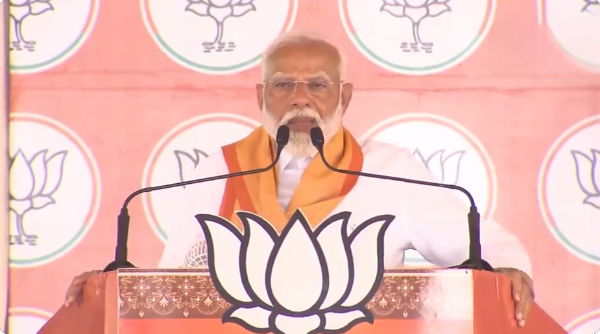In a charged address at a public gathering in Haryana’s Bhiwani, Prime Minister Narendra Modi made waves by alleging that the West Bengal government had been recklessly distributing Other Backward Classes (OBC) certificates, even to individuals he referred to as infiltrators, predominantly Muslims. Modi’s statements brought to the forefront a contentious issue surrounding the validity and regulation of OBC certificates in the state.
PM Modi’s assertion, “In West Bengal, they have issued OBC certificates to Muslims overnight and that too to infiltrators. The High Court has invalidated all the OBC certificates issued to Muslims in the last 10-12 years,” sparked immediate debate and scrutiny across political circles.
The Prime Minister’s comments come amid ongoing legal battles over the legitimacy of OBC certificates, particularly those pertaining to the Muslim community, in West Bengal. His allegations not only intensify the already heightened political atmosphere in the state but also raise grave concerns regarding the transparency and integrity of administrative processes.
The accusation of hasty issuance of OBC certificates, including to infiltrators, presents a grave challenge to the state government’s governance and regulatory mechanisms. It underscores the urgent need for robust verification protocols and stringent oversight to uphold the credibility and sanctity of government-issued documents.
While the West Bengal government has yet to offer a formal rebuttal to PM Modi’s allegations, the controversy is expected to become a pivotal issue in the lead-up to the state elections. The matter strikes at the core of socio-political dynamics and holds significant sway over public sentiment.
PM Modi’s remarks underscore the intricate interplay between identity politics, citizenship debates, and administrative accountability in India’s complex socio-political landscape. The allegations surrounding the issuance of OBC certificates in West Bengal underscore the pressing need for comprehensive reforms and diligent governance practices to address the challenges posed by such contentious issues.



